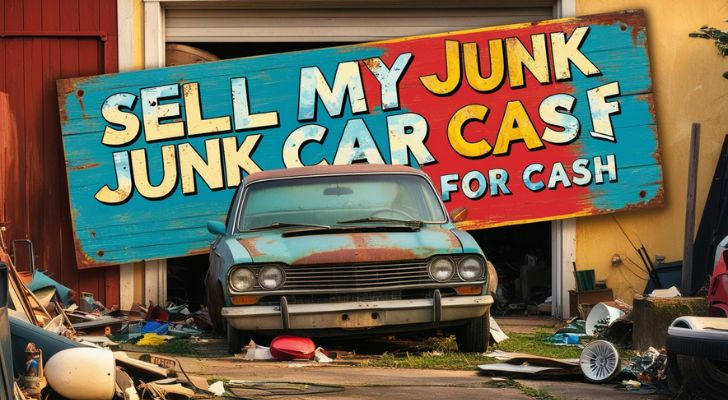How to Sell Your Junk Car Quickly and Safely: A Practical Guide for Car Owners
Deciding between selling or scrapping your junk car can be confusing. This guide covers key steps to help you choose the best option, complete the sale smoothly, and handle essential post-sale tasks. From maximizing value to protecting yourself legally, learn how to simplify the process and get reliable cash for your vehicle.

Understanding Your Options: Selling vs. Scrapping Your Junk Car
Option 1: Selling to a Junk Car Buyer
Handing your car to a buyer means getting a single offer for the entire vehicle. Most buyers arrange pickup, handle paperwork, and pay on the spot—often closing the deal within 24–48 hours.
Key Benefits:
- On-the-spot payment
- No need for car disassembly
- Pickup included
Option 2: Dismantling or Scrapping the Car
If you’re handy, you can remove valuable parts (like the engine or catalytic converter) and sell them separately. Scrapyards then pay by car weight for what’s left.
Key Benefits:
- Potentially higher payouts for rare parts
- Flexibility if you want to maximize value
- Suitable for those with time and mechanical skills
Did You Know? The average junk car sells for $300–$1,500, while selling key parts individually can boost your earnings but demands much more time and effort.
Maximizing Value: When to Sell Whole vs. Dismantle for Parts
Best Time to Sell Whole:
- Fast cash flow needed
- Lack of tools or space
- Vehicle is common or heavily damaged
Best Time to Dismantle:
- Car has high-demand components
- You’re mechanically skilled
- You can find buyers for parts
Quick Comparison Table
| Option | Average Payout | Skill Required | Time Commitment |
|---|---|---|---|
| Sell to Buyer | $300–$1,500 | Low | 1–2 days |
| Scrap for Parts | $400–$1,200+ | High | Days–Weeks |
Choosing the right route depends on your priorities—if speed and convenience outweigh the extra dollars, selling whole is ideal.
Step-by-Step Guide to Selling Your Junk Car Fast and Hassle-Free
Gather Documentation: Having your title and registration ready speeds up the sale. If the title is lost, check with your state’s DMV for alternative solutions.
Get Offers & Compare: Contact local junk car buyers for instant quotes—many can provide ballpark figures in minutes with just your car’s year, make, and model.
Schedule Pickup: Most buyers arrange a convenient time to tow your vehicle, often within one or two days.
Receive Payment on Pickup: Payment is typically delivered at vehicle collection. Double-check the amount and only hand over keys after you’re paid.
Sign Over Ownership: Sign the title as required by your state to officially transfer ownership. Keeping a bill of sale is recommended for extra peace of mind.
Essential Post-Sale Tasks to Protect Yourself Legally and Financially
Cancel Insurance: Contact your insurer about the sale to stop payments and avoid future liability.
Remove License Plates: Depending on your state, return plates to the DMV or keep them if transferring to another vehicle.
Notify DMV or BMV: Many states require sellers to file a vehicle transfer notice—failure to do so could leave you responsible for parking tickets or accidents after the sale.
Remove Personal Items: Give your car a final sweep—check the glove box, trunk, under seats, and in any compartments for personal belongings.
Tips for Working with Junk Car Buyers and Avoiding Common Pitfalls
1. Beware of Lowball Offers
Get several quotes and don’t settle for the first offer; values can vary by hundreds of dollars.
2. Confirm Payment Method
Choose cash or a secure digital transfer you can verify on the spot. Avoid checks unless you can confirm funds immediately.
3. Review Buyer Credentials
Look for licensed, reputable buyers. Check online reviews to ensure the buyer is trustworthy and complies with state regulations.
4. Avoid Towing Fees
Legitimate buyers usually include towing in their offer. Be wary of anyone asking for extra charges to remove the car.
Selling your junk car doesn’t need to be stressful or risky. By following these proven steps—comparing your options, completing paperwork, and taking care of post-sale chores—you can maximize your payout, safeguard yourself legally, and move on with confidence.
